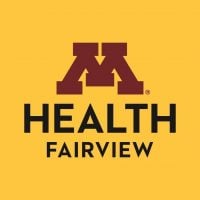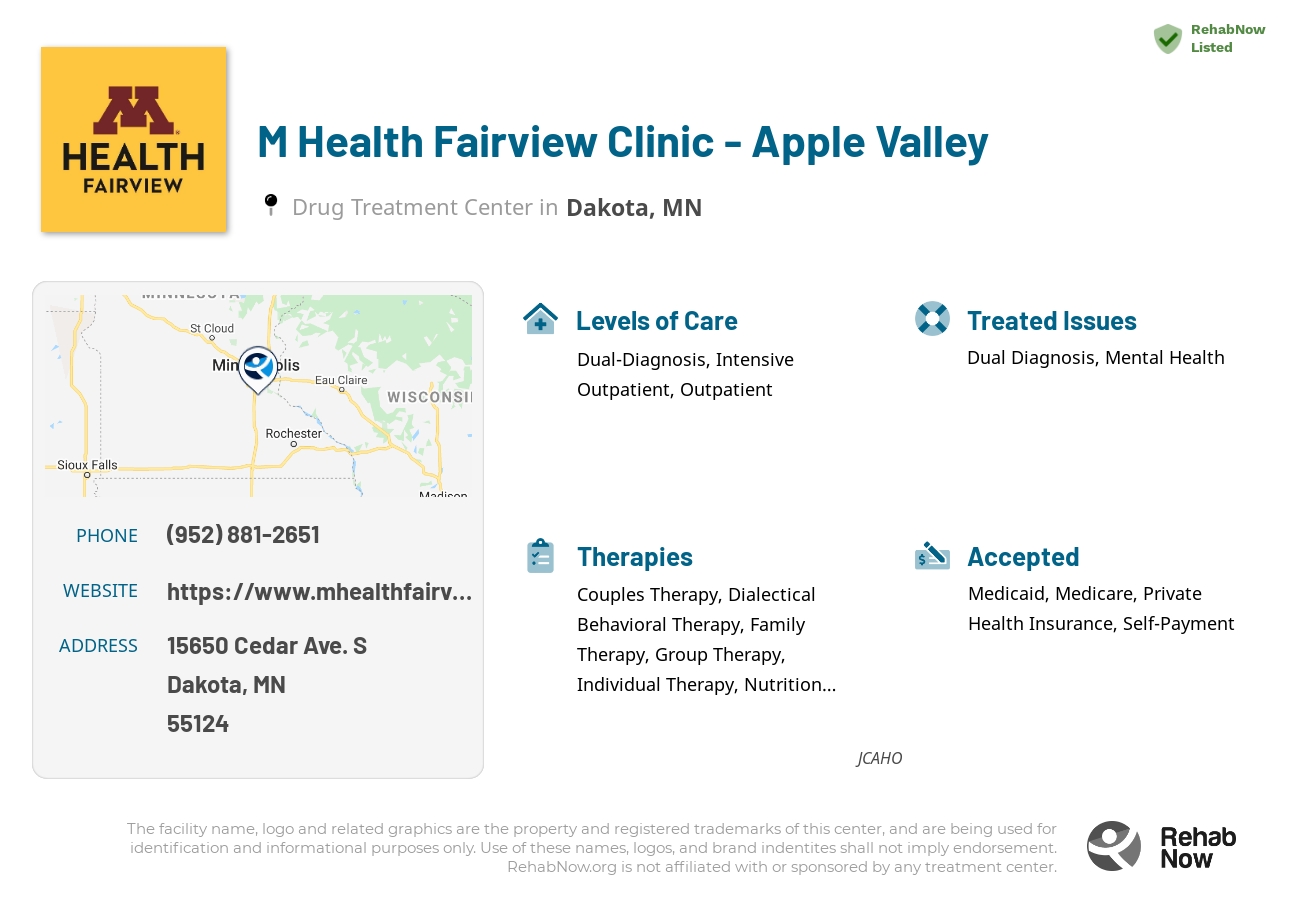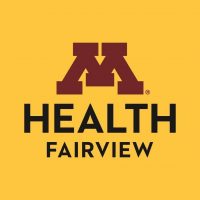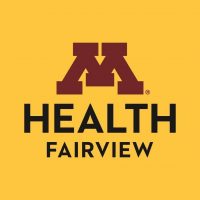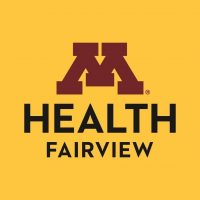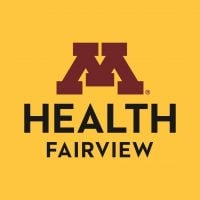M Health Fairview Clinic - Apple Valley
Drug Rehab Center in Dakota, Minnesota
M Health Fairview Clinic - Apple Valley in Dakota, Minnesota offers comprehensive healthcare services, including primary care, mental health, and addiction treatment, with a team of experienced providers and nurses providing personalized care and evidence-based treatments.
About M Health Fairview Clinic - Apple Valley in Minnesota
M Health Fairview Clinic - Apple Valley, located in Dakota, Minnesota, is a comprehensive healthcare facility that is part of the nonprofit Fairview Health Services integrated health system. The clinic provides a wide range of services, including primary care, mental health treatment, and substance abuse disorder care.
• Board-certified providers and registered nurses offer personalized, comprehensive care for all ages
• Inpatient and outpatient healthcare services are available
• Addiction and substance abuse services include case management, individual and group counseling, medication management, and relapse prevention
• Experienced team provides effective, compassionate, evidence-based care for individuals struggling with addiction and substance use disorders
M Health Fairview Clinic - Apple Valley is accredited by The Joint Commission and licensed by the Minnesota Board of Behavioral Health and Developmental Disabilities. They have received numerous awards for their exemplary addiction treatment services and participate in the SAMHSA National Registry of Evidence-based Programs and Practices.
The clinic treats a variety of addictions and substance use disorders, offering individualized treatment plans that focus on helping patients develop the skills and resources needed for positive behavioral changes. Treatment options may include individual and group therapy, medical and psychotherapeutic treatments, and peer support services.
Genders
Ages
Modality
Additional
Accreditations

JCAHO
Conditions and Issues Treated
Recovery is not simply about stopping drug use. Recovery is working with addiction while recovering mental health issues that are fueling the addiction in the first place.
Levels of Care Offered
This center offers a variety of custom treatment tailored to individual recovery. Currently available are Dual-Diagnosis, Intensive Outpatient, Outpatient, with additional therapies available as listed below.
Addicts who need help with their addiction can enroll in an intensive outpatient program (IOP). But the patient won’t live there during treatment.
IOP involves patients visiting a medical office building regularly for therapy and other services while continuing to live their lives.
IOP is a step up from drug or alcohol detox, but it’s still a phase of recovery, not the end goal. Patients in need of IOP have many options for rehab and treatment.
Outpatient treatment is considered the lower intensity level of addiction treatment. It’s ideal for early phase addiction or lower intensity addictions. It may include weekly sessions instead of daily. It may include weekly sessions instead of daily. Peer group support, 12-step programs, and individual counseling may still be involved but at a lesser frequency than an intensive outpatient program. It is a good choice for someone who doesn’t need to go through a medically supervised detox and who has a supportive home environment. It requires motivation and dedication to commit to the program without constant monitoring.
Therapies & Programs
Individual therapy involves one-on-one sessions between the patient and therapist. It provides patients with a safe environment to openly discuss personal and sensitive issues with the therapist. They find the therapist as someone they can trust. Individual therapy aims to identify the core issues that would have led the patient to substance abuse and address them effectively. The therapist can develop patient-specific customized solutions through individual therapy, which aids speedier recovery.
Couples therapy works with clients and significant others in a professional capacity to improve relationship dynamics. This can be helpful for addicts who are trying to marry the idea of recovery into their work, family, social lives – any aspect that has to do with relationships.
Through counseling sessions, addicts will have an opportunity to talk about their addiction with professional partners. These partners can offer feedback and advice on how to get sober while keeping healthy relationships intact. A good couples therapist will help addicts understand their part in an unhealthy relationship dynamic or find ways to deal with anger or resentment from significant others outside of the home.
Family therapy is a group problem-solving that aims to improve communication and relationships between the addict, their family, and sometimes friends. The main goal of family therapy for drug addiction is to create an environment where communication can occur without judgment, hostility, or blame. The therapist is with the family as they learn to communicate differently, especially with the addict when s/he is using. The family can learn to reduce their enabling behavior or rally together and support each other during tough times.
An addict’s family can play a vital part in helping them to avoid relapse because they can spot the warning signs and help them get back on track before it becomes too much of a problem. Family therapy is one of the most effective ways to help addicts stay on the path to long-term sobriety. When a drug addict decides that they want to try and get sober, it takes the support of every person they love to succeed. It can be incredibly difficult for loved ones to watch an addict go through the pain and suffering of withdrawal, but by being there with them and supporting them, they can help to make sure that the addiction never returns.
Groups typically involve meetings with other recovering addicts who can relate to one another’s experiences. They might meet in person or online and typically focus on the process of staying sober rather than overcoming a specific addiction.
In these groups managed by M Health Fairview Clinic - Apple Valley, addicts can build a sense of community and develop strong emotional connections with others who understand what they are going through. These beneficial relationships can help addicts overcome their cravings and prevent relapse at any point during the recovery process.
In general, trauma therapy is a clinical process that helps individuals deal with mental stress often caused by traumatic events. The therapist helps the person identify, understand, and work through the problem. This is done with the help of talking about it in group or one-on-one counseling sessions. Therapists use relaxation, role-playing, art, and music to help the person open up about what is bothering them.
There are many different types of trauma therapists, such as psychiatric nurses and counselors. Not everyone is a good candidate for this type of therapy; it is generally reserved for people who have recently experienced a traumatic event and struggle to get over it. It is often done for children, teenage victims of sexual assault, and war veterans.
Dialectical Behavior Therapy (DBT) is a type of therapy created in the late 1980s and early 1990s to help people with high rates of suicidal behavior. DBT helps people learn how to live a life that is no longer controlled by overwhelming emotions and urges. It is beneficial in treating drug addiction because it helps patients understand and cope with their cravings for drugs or alcohol rather than turning to those substances as a way of coping.
The goal of medical nutrition therapy for drug and alcohol addiction is to help patients avoid “trigger” foods. For example, someone who craves alcohol may be addicted to sugar. Making sure this person eats a balanced diet with recommended amounts of protein, vegetables, and fruit can help manage urges to drink.
Nicotine replacement therapy treats nicotine addiction using external sources of nicotine, such as patches or gum to substitute for nicotine. This allows people trying to quit smoking to get their desired dose of nicotine without actually having to smoke cigarettes. The idea behind NRT is that by providing smokers with nicotine in forms that are not cigarettes, they may be more likely to quit smoking.
NRT has been available for many years now, and there is a wealth of evidence that shows that it helps people trying to quit smoking. There are several different types of NRT devices on the market now. Patients interested in quitting smoking should talk to their doctors about the best kind of NRT for them.
Payment Options Accepted
For specific insurance or payment methods please contact us.
Is your insurance accepted?
Ask an expert, call (888) 674-0062
M Health Fairview Clinic Associated Centers
Discover treatment facilities under the same provider.
- M Health Fairview Clinic - Apple Valley in Saint Paul, MN
- Fairview Health Services - Uptown in Minneapolis, MN
- M Heatlh Fairview Counseling - Lakeville in Lakeville, MN
- M Heatlh Fairview Counseling - Bloomington in Bloomington, MN
- M Heatlh Fairview Counseling - Wyoming in Wyoming, MN
Learn More About M Health Fairview Clinic Centers
Additional Details
Specifics, location, and helpful extra information.
Dakota, Minnesota 55124 Phone Number(952) 881-2651 Meta DetailsUpdated April 15, 2024
Staff Verified
M Health Fairview Clinic - Apple Valley Patient Reviews
There are no reviews yet. Be the first one to write one.
Dakota, Minnesota Addiction Information
Minnesota is fighting an opioid epidemic that is leaving hundreds of its residents dead each year. Both prescription opioids and illicit opioids are widely abused in the Land of 10,000 Lakes. Heroin continues to be one of the most commonly abused drugs in the state, if not the most common illicit drug. Over 10% of all treatment admissions in Minnesota list heroin as their drug of choice.
Treatment in Nearby Cities
- Little Falls, MN (103.6 mi.)
- Ogema, MN (210.0 mi.)
- Rush City, MN (67.8 mi.)
- Sawyer, MN (137.8 mi.)
- Albert Lea, MN (74.7 mi.)
Centers near M Health Fairview Clinic - Apple Valley
The facility name, logo and brand are the property and registered trademarks of M Health Fairview Clinic - Apple Valley, and are being used for identification and informational purposes only. Use of these names, logos and brands shall not imply endorsement. RehabNow.org is not affiliated with or sponsored by M Health Fairview Clinic - Apple Valley.
